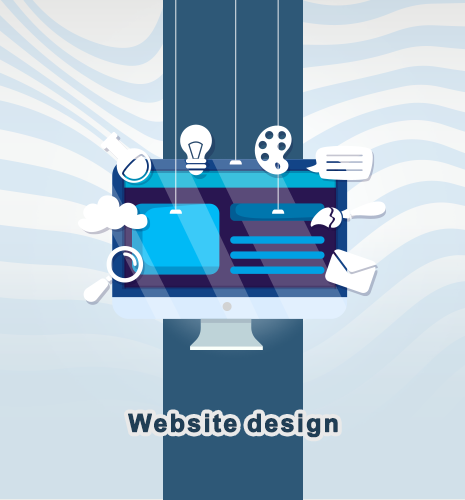As a business owner or organization leader looking to design a website for your clients, it’s important to understand that website design is a crucial part of your marketing strategy. Your website shapes customer behavior and leaves a lasting first impression of your brand and services, so investing in it wisely is essential. This guide will walk you through the top 8 website design principles to help you elevate your online presence effectively.
When designing a website, consider what visitors are looking for, their needs, and how they interact with your site. Understanding these factors will help you create a site that engages and retains visitors.
8 Essential Website Design Principles
Effective website design is key for any company aiming to enhance its online presence and achieve its marketing goals. An attractive and user-friendly website can attract more visitors, increase brand awareness, and convert visitors into customers. Here are the most important principles for website design:
1. Purpose of Your Site
Your website should meet the user’s needs, whether it is for selling products, providing services, or entertainment. This will encourage user interaction. Defining the purpose clearly helps in creating a focused and engaging user experience.
2. Simplicity and Ease of Use
Simplicity should be a key consideration in all aspects of the site. Achieving this requires careful planning and good design. Simple designs enhance user experience by making navigation easy and content accessible. Avoid clutter and focus on essential elements to improve usability.
3. Colors
The choice of colors should align with the site’s purpose. Each color evokes different emotions, so use them harmoniously and avoid using too many colors. Bright colors can increase customer interaction and make them feel satisfied and happy. Use a color scheme that resonates with your brand and appeals to your target audience.
4. Content
Your content should be engaging and easy to understand, without being boring. Write accurately and creatively, using compelling marketing slogans and phrases to convert visitors into customers. Quality content that provides value will keep visitors on your site longer and encourage them to return.
5. Images
Images are crucial in website design as they catch the visitor’s eye first. They should accurately represent the site’s purpose, using harmonious colors and modern design tools like Adobe programs. High-quality images can enhance the visual appeal and make your site more engaging.
6. Loading Speed
Today’s online users are often impatient. Ensuring fast loading speeds is crucial, which can be achieved by using the latest technologies, such as React. Optimize images, use efficient coding practices, and leverage content delivery networks (CDNs) to improve loading times.
7. Icons
Icons are essential elements in web design, alongside images, texts, colors, and graphics. They are widely used to convey information visually and should be simple and expressive. Properly designed icons can guide users, enhance navigation, and improve the overall user experience.
Importance of icons:
- Attract attention
- Provide visual space
- Help fill out forms
- Improve navigation
8. Ease of Navigation
Ensure quick and easy access to the content users are looking for. Provide intuitive design and straightforward navigation to meet their expectations. A well-structured navigation system helps users find information efficiently and improves overall satisfaction.
Tips to Enhance Visitor Navigation on the Site
- Place the navigation pointer where users expect to find it.
- Customize the navigation bar for users.
- Make sidebars distinct from the rest of the page.
- Make your hyperlinks stand out from the body text.
- Include an internal search function.
- Include a footer with navigational aids.
Conclusion
Designing a successful website requires attention to many details, from defining clear goals to ensuring compatibility with all devices, fast loading speeds, engaging content, ease of use, SEO optimization, and comprehensive testing before launch.
By following these principles, companies can design websites that significantly contribute to achieving their marketing goals, enhancing their online presence, attracting more customers, improving their brand image, and increasing sales and profits.
Investing in professional website design is a wise decision for any company seeking success in the digital business world.
Browse our services related to professional website design here: Aquality Scope



